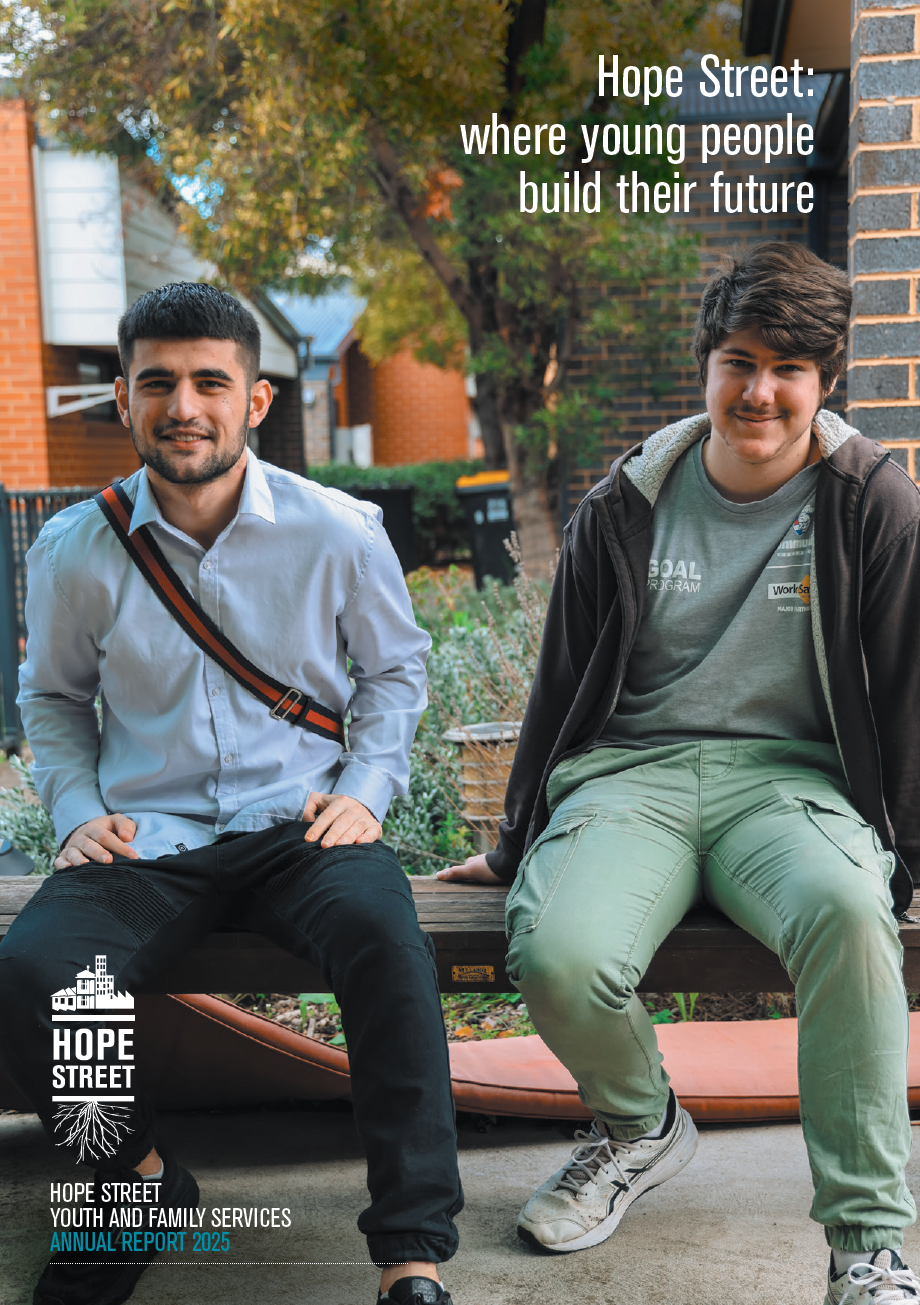Today's launch of The Role of Community Development in Responding to Homelessness edition of the Council to Homeless Persons' Parity magazine has highlighted how essential community support is for helping those at risk of or experiencing homelessness.
Community development brings together members of the local community to enable members to identify and develop actions to address local needs.
As Hope Street's CEO, Donna Bennett has embedded the principles of community development within the culture of the organisation as the core driver of partnerships and relationships within communities when responding to youth homelessness locally. In the magazine's opinion piece, she writes:
A strong demonstration of this is the leadership Hope Street has taken in achieving significant resources for the development of the Hope Street First Response Youth Service in Melton. ...I knew this could only succeed with strong community support and genuine ownership of the project.
Given Hope Street’s expertise our role was then to facilitate awareness of youth homelessness in the local community including causes and the impact on young people and children experiencing homelessness. Developing the community’s awareness of the solutions and benefits to responding and preventing young people experiencing homelessness was just as critical as informing the community of the damaging consequences of youth homelessness. Likewise, Hope Street’s campaign included raising community awareness about how youth homelessness affects individuals, families, schools, businesses, agencies, Victoria Police, local government, Victorian Government and so on.
Read the full article
Hope Street became a part of the City of Melton community in 2009 with the establishment of its Hope Street in Melton program. Since 2009 to now the growth and development of the Hope Street programs within the Melton area has been based upon strong community development principles. As Hope Street's Service Development Manager, Bruce Tucker, says:
When considering this growth through community development in the Melton region, two comments from City of Melton Council officers to me seem to book-end the community development that has taken place across this time. In 2009, when Hope Street first explored the possibility of tendering for the specialist youth supported accommodation program in Melton, the statement was made that — a lot of organisations and services come to Melton and provide services in an outreach capacity but not many come to embed and join with the local community in developing local services to meet the local needs.
...It is often stated that homelessness is a community problem and needs the community to be part of the solution. However putting this into practice is not always easy and requires effort and time. Because Hope Street started and focused on the ideal of investing into the local community, the result has been a community developed solution into youth homelessness in Melton.
Read the full article
A collective effort from the community - individuals, families, businesses, government, community and philanthropic organisations - to address local issues with local solutions must include those who are (at risk of being) homeless. This is a real reflection of how a strong community comes together to support those in need.
Do we have a community that is inclusive of people experiencing homelessness, in which they are part of the 'us' or one from which they are excluded — where people without a home become 'them'; outsiders to be feared, or reviled?
-- Jenny Smith, CEO of the Council to Homeless Persons
Parity magazine, the Council to Homeless Persons' national publication, is published ten times a year and examines homelessness from personal, local, social, national and global perspectives.














